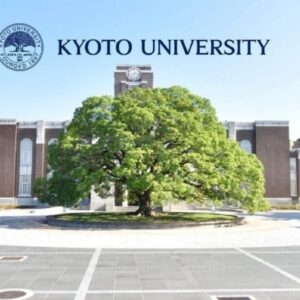Due to a protracted power outage, secondary school students in Asaba, Delta State, were compelled to write their West African Senior School Certificate Examination (WAEC) papers using touch lights and phone torches. This is a concerning incident that underscores the ongoing infrastructure issues in some parts of Nigeria.
The blackout happened just before the exam started on Wednesday night, according to witnesses and impacted pupils. Since the school administration had not supplied a backup generator, pupils were forced to finish their examinations in almost full darkness using flashlights on their phones and personal torches.
“This is not fair,” said a student from one of the government secondary schools in Asaba. “We prepared for this exam for months, but we couldn’t even see our answer sheets clearly. I used my phone torch throughout the exam.”
Teachers and parents have expressed concern, calling the situation a “gross failure of basic infrastructure” and demanding accountability from both the school and the relevant authorities.
“This is a national examination that determines these children’s future,” said Mr. Chinedu Okolie, a concerned parent. “The fact that something as basic as electricity was unavailable is disgraceful and unacceptable.”
Images and videos of children writing in low light have been widely shared on social media, igniting indignation and redoubling requests for funding for education and dependable electricity in rural and semi-urban regions.
Although the state’s WAEC authorities have not yet released a formal statement, sources inside the education board said that the matter will be examined and that the impacted schools would be requested to submit reports.
“This is not an isolated case,” said a teacher who asked to remain anonymous. “Power failure during exams is becoming too common, and it’s time the government intervened seriously.”
The Federal Ministry of Education and the Delta State Government are being urged by several civil society groups and educational advocates to look into the situation and make sure it doesn’t happen again.
Students and parents hope this tragedy serves as a wake-up call to emphasize students’ wellbeing and suitable learning conditions, especially during key national tests, as the WAEC exams continue throughout Nigeria.
Solving the menace of students writing national exams like WAEC with touch lights due to power outages like the recent incident in Asaba, Delta State, requires a multi-layered and systemic approach. Here are practical solutions to address and permanently eliminate this disgrace from our education system:
1. Provision of Reliable Power Supply in Schools
-
Solar Power Installation: Every public and private exam center should be equipped with solar-powered lighting systems as a sustainable backup solution.
-
Government-Supplied Generators: WAEC-accredited schools should be mandated and funded to have standby generators and fuel for exam periods.
-
Electricity Prioritization During Exams: State governments can work with DISCOs (electricity providers) to prioritize power supply to exam centers during WAEC and NECO exams.
2. Stronger Government Oversight and Policy Enforcement
-
Ministry of Education Intervention: The Federal and State Ministries of Education must enforce minimum infrastructure standards for all WAEC centers.
-
Penalties for Negligent Schools: Schools that fail to provide proper exam conditions should face sanctions or risk losing WAEC accreditation.
3. Infrastructure Investment in Education
-
National Education Emergency Fund: The federal government should establish a fund dedicated to infrastructural emergencies in schools, especially during critical periods like WAEC.
-
Public-Private Partnerships (PPP): Encourage corporate sponsorship and CSR projects from power and telecom companies to equip schools with modern lighting and backup systems.
4. Training and Preparedness of School Administrators
-
Pre-Exam Readiness Checks: Schools must undergo mandatory checks and mock readiness assessments to ensure electricity, ventilation, and security are in place before exams begin.
-
Crisis Preparedness Protocols: Schools should have emergency action plans, including flashlights, batteries, and generator fuel stock.
5. Community and Media Engagement
-
Citizen Reporting Systems: Enable parents and civil society to report inadequate exam conditions via hotlines or apps.
-
Media Advocacy: Continuous pressure through local and national media can hold authorities accountable for recurring failures.
6. Empowering Students and Parents
-
Civic Education: Teach students their rights to safe and dignified exam environments.
-
PTA Engagement: Parent-Teacher Associations should be empowered to demand better infrastructure for schools, especially during national exams.
7. Data-Driven Monitoring
-
Real-Time Reporting Systems: The WAEC board can introduce mobile monitoring teams and online dashboards to track live conditions at exam centers.
-
Post-Exam Feedback Surveys: Students should be able to report exam-day conditions anonymously, helping WAEC and the Ministry of Education identify systemic gaps.
Fixing this problem is not just about electricity, the Government needs to prioritize education, enforcing accountability, and treating students with dignity. If we can power shopping malls and political rallies without fail, we must ensure that students aren’t writing life-changing exams in the dark.
For comprehensive coverage and firsthand accounts, you can refer to the following sources:
-
Punch Nigeria: WAEC candidates in Delta sit for paper in darknessSahara Reporters+2Punch+2Legit.ng – Nigeria news.+2
-
Sahara Reporters: WAEC Candidates In Delta Take Exam At Night Using Torchlights After Four-Hour Delay In Question PapersSahara Reporters+1Legit.ng – Nigeria news.+1
-
Linda Ikeji’s Blog: “It’s not OK!” Outrage as students sit for WAEC exam at night with torch light in Asaba (video)Linda Ikeji’s Blog+1Legit.ng – Nigeria news.+1







